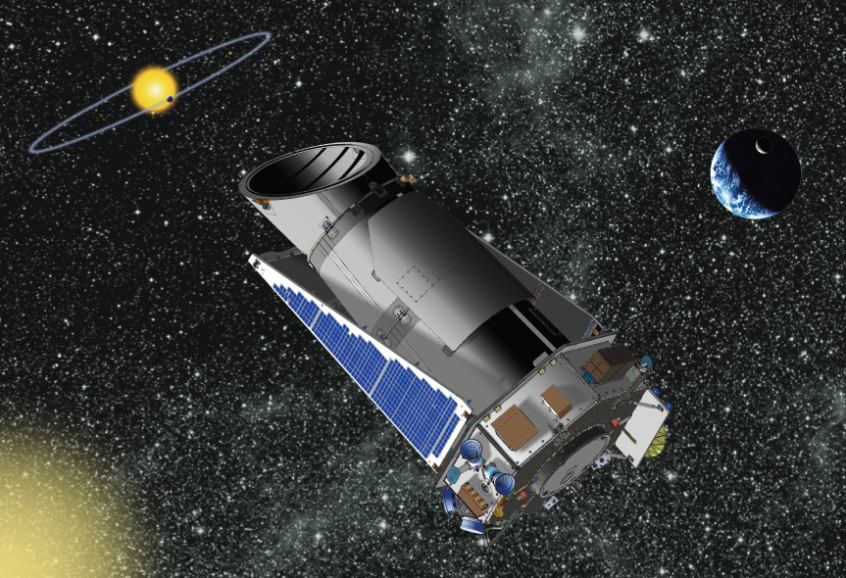
The Kepler space telescope hit a milestone on Tuesday.
The NASA spacecraft has found its 1,000<sup>th exoplanet, including seven other newly confirmed Earth-like planets, bringing the mission's current total number of discoveries to 1,004.
Scientists announced the existence of the new batch of exoplanets on January 6 at the annual winter meeting of the American Astronomical Society in Seattle, Washington.
Mike Wall of Space.com reports that according to mission team members, at least two of the new Kepler planets are very similar to Earth—small, rocky, and with relatively hospitable surface conditions.
"We're not only homing in on Earth-like things, but also filling in the Earth-like population," said astronomer Douglas Caldwell.
The telescope has also found 3,200 additional planet candidates. Scientists say about 90 per cent of these would likely end up being confirmed.
Though the planet-hunting telescope, which was launched in 2009, is yet to spot an exact mirror of planet Earth —a planet the size of the Earth that orbits a sun-like star in the habitable zone— Kepler mission scientist Natalie Batalha said it is on track to fulfilling its goal: to determine how frequently these worlds occur throughout the Milky Way galaxy.
But Kepler has been compromised. In May 2013, the second of the probe's four reaction wheels that help the craft orient itself failed. As Kepler orbits the sun, a repair mission was not possible and the telescope's data-gathering mission was put to an end.
However, Kepler was revived the next year when NASA approved the telescope for a limited "K2" mission. Now the space observatory not only scans the heavens for exoplanets, but star clusters and supernova explosions as well.
Before being crippled, Kepler still managed to leave scientists with their hands full. During the four years the probe operated properly, it gathered huge amounts of information from which new life-bearing planets may be discovered.
"I fully expect that scientists will be working through Kepler data—and characterising those planets and inferring various properties of exoplanets based on that data—literally for decades," Batalha said.













